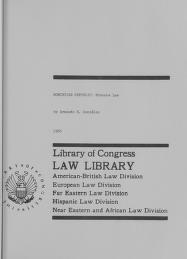Divorce Laws in the Dominican Republic and What You Should Know
Divorce in the Dominican Republic can be a straightforward process compared to other countries, but it requires a solid understanding of the local laws. Whether you are a resident or a non-resident, the Dominican Republic offers various divorce options. These options cater to different needs, such as uncontested or mutual agreements, making it an appealing destination for couples looking to separate.
Before starting the process, it’s essential to familiarize yourself with the legal grounds, residency requirements, and types of divorces available. By understanding these elements, you’ll know what to expect and how to navigate the system efficiently.
Grounds for Divorce in the Dominican Republic

The Dominican Republic allows for divorce on several grounds, each providing a different legal basis for separation. Understanding these grounds is crucial for choosing the most appropriate route.
- Mutual Consent: Both spouses agree to the divorce, which is often the fastest and least complicated option.
- Incompatibility: If the spouses can no longer get along, this reason can be cited.
- Adultery: Proving infidelity can serve as grounds for divorce.
- Abandonment: If one spouse leaves for an extended period without returning, the other may file for divorce.
- Imprisonment: If a spouse is sentenced to imprisonment for over five years, this can be grounds for divorce.
It’s important to discuss your situation with a lawyer to determine which ground applies best to your case.
Residency Requirements for Divorce
One of the attractive aspects of divorcing in the Dominican Republic is the flexibility of its residency requirements. You do not have to be a resident or citizen to file for divorce here. In fact, many non-residents choose the Dominican Republic for its simplified divorce processes, especially under mutual consent divorces.
For non-residents, at least one spouse must be present in the country to file for divorce. In some cases, an attorney can represent you if you are unable to be physically present, but this is more common in uncontested cases.
Here’s a quick breakdown of the requirements:
- Residents: Proof of residency is required.
- Non-residents: No residency is needed, but presence during proceedings is generally required.
Always check with a local legal expert to ensure you meet all the criteria for your specific case.
Types of Divorce Available
The Dominican Republic offers several types of divorce, allowing couples to choose the option that best suits their circumstances. Whether you and your spouse are on good terms or there are unresolved issues, the country’s legal system provides a variety of ways to dissolve the marriage.
Here are the main types of divorces available:
- Divorce by Mutual Consent: This is the easiest and fastest option, where both parties agree to the divorce and the terms. It typically involves minimal legal proceedings and can often be finalized within a matter of weeks.
- Divorce for Incompatibility: If you and your spouse cannot reconcile your differences, this type of divorce may be filed. You do not need to prove fault, but evidence of incompatibility must be provided.
- Divorce for Specific Causes: This type is used when one party can provide legal grounds for the divorce, such as adultery, abandonment, or imprisonment. The filing spouse will need to prove these grounds in court.
- Uncontested Divorce: Similar to mutual consent but with slightly more flexibility, this option is available when both parties agree on the divorce but may have minor disputes that are quickly resolved.
Choosing the right type of divorce depends on the relationship between the spouses and the complexity of their issues. Discussing your situation with an attorney can help you pick the most efficient option for your case.
Steps to File for Divorce in the Dominican Republic
Filing for divorce in the Dominican Republic involves several legal steps, but with the right preparation, it can be a smooth process. Understanding the necessary steps can help ensure your divorce proceeds without unnecessary delays.
Here’s a general outline of the steps you’ll need to follow:
- Choose the type of divorce: Determine whether you’ll be filing for mutual consent, incompatibility, or a cause-based divorce. This decision will shape the rest of the process.
- Hire a lawyer: It’s advisable to hire a Dominican lawyer to guide you through the legal requirements and paperwork.
- File the petition: Your lawyer will submit a divorce petition on your behalf to the local court. If it’s a mutual consent divorce, the process will be faster.
- Appear in court: In most cases, at least one spouse will need to appear in court. This can be done in person or, in some cases, through legal representation if both parties agree.
- Receive the judgment: Once the court reviews your case, a judgment will be issued. This could take anywhere from a few weeks to several months, depending on the type of divorce.
- Register the divorce: After receiving the judgment, you’ll need to register the divorce with the Dominican Civil Registry to make it official.
Following these steps with the help of a lawyer can streamline the process and avoid any potential issues.
Legal Representation and Costs Involved
While it is not legally required to have an attorney for a divorce in the Dominican Republic, it is highly recommended. The legal system can be complex, especially if you are a non-resident or if your divorce involves disputes over property, custody, or other issues.
The cost of legal representation varies depending on the complexity of the case and the lawyer you hire. Here are some typical costs involved:
- Attorney fees: Lawyers may charge a flat fee for uncontested divorces or an hourly rate for more complex cases. Costs can range from $1,000 to $3,000 or more, depending on the nature of the case.
- Court fees: Filing fees and administrative costs will also apply, typically ranging between $200 and $500.
- Translation services: If any documents need to be translated, you may incur additional charges for certified translations.
- Travel expenses: Non-residents may need to travel to the Dominican Republic for court appearances, adding to the total cost.
Having a clear understanding of these costs upfront can help you budget accordingly. It’s a good idea to discuss fees with your lawyer at the outset to avoid any surprises during the process.
How Long Does the Divorce Process Take
The time it takes to finalize a divorce in the Dominican Republic depends on several factors, including the type of divorce and the complexity of the case. In general, divorces in the Dominican Republic are known for being relatively quick, especially when both parties agree on the terms.
Here’s an estimate based on the type of divorce:
- Mutual Consent Divorce: This is the fastest option, often completed within 2 to 6 weeks. Both parties must be in agreement on all terms, and there is little need for court intervention.
- Uncontested Divorce: This type can take slightly longer than mutual consent, usually between 1 and 3 months, depending on the court’s schedule and any minor disputes between the spouses.
- Divorce for Specific Causes: If the divorce is based on legal grounds such as adultery or abandonment, it may take longer, as evidence needs to be presented. The timeline for this type of divorce can range from 3 months to over a year.
The availability of the court, the lawyer’s efficiency, and whether both spouses reside in the Dominican Republic can also impact the process. Non-residents may experience slight delays if their physical presence is required in court.
While the process can be fast, always consult with your attorney to get a clearer picture based on your specific circumstances.
Conclusion on Divorce Laws in the Dominican Republic
The Dominican Republic offers a flexible and relatively simple legal framework for divorce, making it an appealing option for both residents and non-residents. Whether you are seeking a mutual consent divorce or need to file based on specific grounds, the legal process is designed to accommodate various situations. The flexibility with residency requirements and the availability of uncontested divorces further simplifies the process.
However, it’s important to remember that legal representation, while not mandatory, can be crucial for navigating the complexities of the system, especially for non-residents or couples with unresolved issues. By understanding the different types of divorces, grounds for divorce, and the steps involved, you can approach the process with greater confidence.
Always ensure you have a clear understanding of the costs, legal requirements, and timelines involved. Consulting with an experienced attorney can help streamline your case and provide you with peace of mind during what can be a challenging time.
Frequently Asked Questions About Divorce in the Dominican Republic
Do both spouses need to be present for the divorce?
In cases of mutual consent or uncontested divorces, it is not always necessary for both spouses to be present. One spouse can be represented by an attorney. However, for contested divorces or specific-cause divorces, the presence of both spouses may be required.
Can non-residents file for divorce in the Dominican Republic?
Yes, non-residents can file for divorce in the Dominican Republic. In fact, many non-resident couples choose this country for its simplified and efficient divorce process. However, at least one spouse must typically appear in court, or be represented by an attorney if it’s a mutual consent case.
How long does a divorce take?
The length of time depends on the type of divorce. A mutual consent divorce can take as little as 2 to 6 weeks, while contested or cause-based divorces may take several months to over a year, depending on the case’s complexity.
Is legal representation required?
While legal representation is not strictly required, it is highly recommended. Divorce laws and procedures can be complex, especially for non-residents or if the divorce is contested. A lawyer can ensure that all legal requirements are met and that the process moves smoothly.


